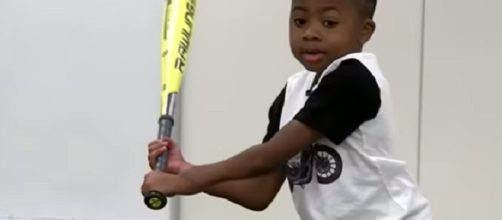The world’s first child bilateral hand transplant recipient, Zion Harvey, is now 10-years-old and is performing daily tasks with his newly acquired hands. The success of the surgery was indeed life-changing as he is a step closer to his dream, which is to be able to play baseball.
In 2015, the Baltimore boy who lost his both hands at the age of 2 made history when he underwent a Bilateral Hand Transplant called vascularized composite allotransplantation at The Children’s Hospital of Philadelphia (CHOP). At the time, the charismatic personality and the inspiring story of 8-year-old Harvey captivated the public, and when CHOP shared the successful operation on YouTube, it became viral.
Harvey’s 10-hour operation was led by Dr. L. Scott Levin, CHOP’s Hand Transplantation program surgical director and Penn Medicine orthopedic surgery department chairman, and Dr. Benjamin Chang, CHOP’s Hand Transplantation program director. The team was joined by 12 surgeons, 4 anesthesiologists, and 8 nurses, among other medical staff.
Harvey’s new life
Two years after the historic transplant, Zion Harvey can now perform everyday tasks like writing, reading and making his own lunch “more efficiently and effectively”. He can also go to the bathroom without any help and can now grip a baseball bat, which was something he wanted to do for more than a year.
With his newly acquired hands, Harvey’s future seems brighter.
In fact, his progress was detailed in the medical journal report of the Lancet Child & Adolescent Health, which was published on Tuesday. Through the help of extensive rehabilitation, he was able to move “the newly transplanted muscles in his hands and feel touch.” Eventually, he learned how to hold a pen, crayons, and scissors, as well as grip and swing a baseball bat with both hands.
His journey and determination
Unfortunately, Harvey’s journey and progress were not a walk in the park. In fact, Washington Post revealed that his body attempted to “reject his new hands eight times.” There were also “serious episodes” of rejection four and seven months following the transplant.
Moreover, Harvey is still taking four immunosuppression drugs.
However, the doctors are hoping to reduce them as needed.
The doctors are also praising Harvey’s determination as he showed no resistance to the treatment. According to Levin, his brain is also good when it comes to communicating with his hands. He said this particular ability of Harvey is “remarkable” since part of his brain has “no hands to activate” for six years.
“I think from an emotional standpoint, he remains a remarkable young man because here, we've had weeks of hospitalization, a daily request for him to interact, to do therapy, to undergo testing, to an interface, and again, there's never been one iota of resistance,” Levin said.
Why Zion lost his hands
Prior to his bilateral hand transplant, Harvey lost his hands and lower legs at the age of 2 due to a life-threatening sepsis infection.
As a result of the infection, he suffered multiple organs failure.
At the age of 4, he had a kidney transplant, with his mother Pattie Ray as the donor. But Zion became an ideal candidate for hand transplant after taking immunosuppressant drugs following his kidney transplant. After more than 18 months of evaluation and preparation, he was listed to receive the donated hands.
Despite being a “lifelong patient” that requires constant care and protection, he has a bright future ahead. As Zion Harvey gains “tremendous independence” with his newly acquired hands, doctors believed that they have restored the boy’s “personal dignity.


